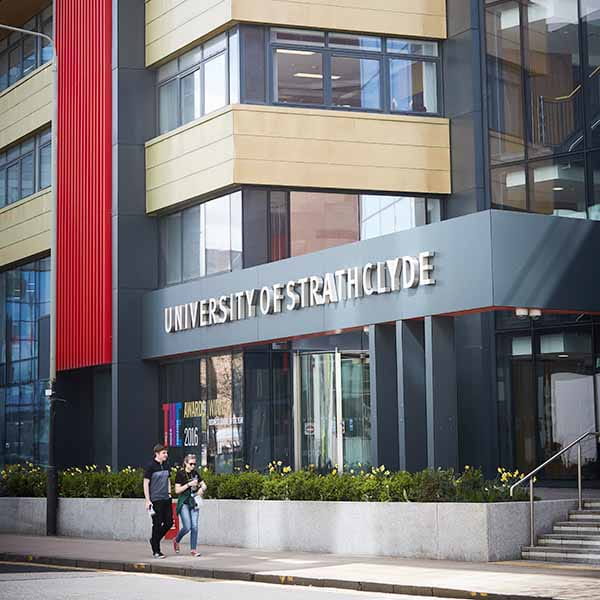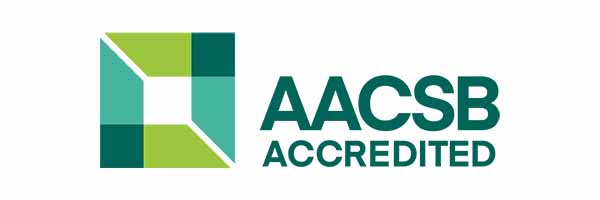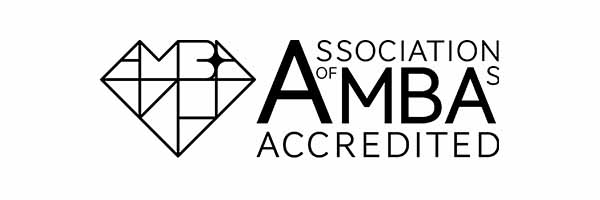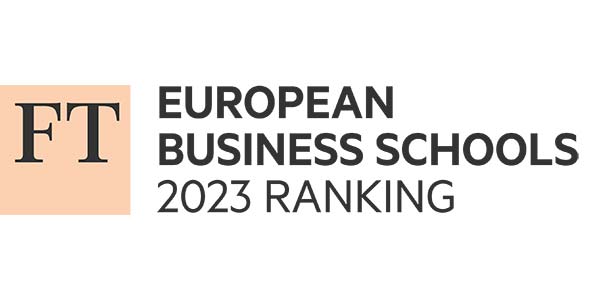MSc Economics & Policy of Energy & Climate Change (Online)
ApplyKey facts
- Start date: September
- Accreditation: Triple-accredited business school AACSB, EQUIS & AMBA
- Study mode and duration: 24 months part-time online distance learning
Study with us
- develop a strong understanding of key issues in environment and energy from policy and economic perspectives
- gain practical insight from leading energy and climate change experts
- benefit from applied teaching, which focuses on the development of transferable skills and applicable knowledge
- suitable for those with a background in a broad range of disciplines
- benefit from an online distance learning study model
The Place of Useful Learning
UK University of the Year
Daily Mail University of the Year Awards 2026
Scottish University of the Year
The Sunday Times' Good University Guide 2026
Why this course
The MSc Economics & Policy of Energy & Climate Change (online) aims to produce future leaders in the sectors of energy and climate change.
The course addresses the complex and increasingly more extreme challenges and uncertainties that industries, economies, governments and societies face. By the end of the programme, you'll be well equipped to understand these, and have the knowledge to adapt to this changing context.
You'll learn about the rapid changes within the global energy system and about the way in which this is impacted by climate change and by the efforts to mitigate its impacts. These changes include escalating energy demand, constraints on supplies, impacts on energy mix, introduction of smart grids, fluctuating energy prices, regulatory pressures to reduce carbon emissions and to promote sustainability, increased integration of renewable energy sources, and changing demographics and patterns of energy use and supply.
The course covers areas of particular strengths of the Department of Economics, with a focus on energy and climate change. Through the Fraser of Allander Institute, the department also boasts research expertise in applying economic knowledge in the policy field.


Through the programme you'll:
Through the programme, you'll become part of Strathclyde’s global community of graduates and researchers who are shaping solutions to some of the world’s most pressing challenges. Sustainability lies at the heart of the programme, explored through environmental, economic, social, and political perspectives.
The MSc will equip you with the analytical and strategic skills needed to address complex economic, climate, energy, and environmental issues, ensuring that real-world challenges are central to your learning experience.
The MSc delivers delivers practical and relevant learning by aligning the programme with the needs of policymakers and industry. The Department of Economics and the Fraser of Allander Institute maintain strong links with stakeholders across the energy sector and the green economy, shaping both our teaching and course content.
The curriculum contextualises knowledge through relevant examples and the analysis of real-world situations, including datasets and empirical case studies. These connections ensure that teaching and research remain aligned with contemporary challenges, promote knowledge exchange, and provide you as a student with practical insights and exposure to real-world issues. This approach ensures that the programme is not only academically rigorous but also directly applicable to professional practice.
The MSc is designed to embed Strathclyde’s core values throughout the student journey. The programme fosters reflective practice, collaborative problem-solving, and strategic thinking. Through modules such as Environmental Economics, Energy Economics, and Energy Markets and Industries, you'll have the opportunity to explore real-world problems and develop practical solutions.
This approach nurtures a mindset of continuous learning and innovation - you are encouraged to challenge assumptions confidently, embrace managed risk in decision-making, and think creatively. You will learn to work across disciplines, share ideas, and co-create solutions for the economic and policy challenges of the green transition.
Above all, the programme shapes ambitious graduates by motivating you to push boundaries, deepen your expertise, and apply your skills to tackle complex challenges in business, government, and society. These qualities are essential for roles in energy policy analysis, addressing today’s key environmental challenges, and driving business and economic analysis.
You'll have access to Strathclyde Inspire, a unique sector leading initiative that supports and encourages all forms of entrepreneurship. This initiative will provide you with opportunities to develop an entrepreneurial mindset through access to a range of entrepreneurial activities, a mindset much valued in the workplace.
What you'll study
Core classes are designed around the latest academic research on the issues facing energy and climate change economists and policy experts today. You'll also have the opportunity to pursue your own interests through a variety of elective classes.
You'll receive comprehensive analytical training and gain in-depth real-world knowledge of energy systems and climate changes issues. Hands-on training in issues related to energy economics, energy finance, energy industries, energy technologies, energy policy, the environment, sustainability, natural resources, climate change, data analysis, economic appraisal and economic modelling will help give you an unrivalled edge in the job market.
Summer project
The summer project will be an extensive and substantial piece of economic and/or policy analysis, and aims to develop those applied research skills that are so important to the energy and climate change professional. You'll work on a desk-based research project, which will be related to the rest of your studies on the course. The summer project will be supported by an academic supervisor and will be completed at the end of the second year of your programme.
Strathclyde Business School
Strathclyde Business School was founded in 1948 and is a pioneering, internationally renowned academic organisation with a reputation for research excellence.
One of four faculties forming the University of Strathclyde, SBS is a triple-accredited business school (AACSB, EQUIS and AMBA) and was the first business school in Scotland to achieve this accolade in 2004.
The Business School is home to seven subject departments and a number of specialist centres, all of which collaborate to provide a dynamic, fully-rounded and varied programme of specialist and cross-disciplinary courses.
Strathclyde Inspire
At Strathclyde, we live and breathe entrepreneurship. The University of Strathclyde started life as a place of useful learning, an institution that wanted to make a difference through dong things innovatively, boldly and socially oriented; this founding mission has never been more relevant. Today, we continue to nurture generations of influencers, innovators and industry leaders, empowering our staff, students and alumni to embrace entrepreneurship, transforming their own lives and the lives of others.
Strathclyde Inspire supports and encourages entrepreneurship in all its forms, so whether you want to be more entrepreneurial in your approach to life, business and society, have an idea for a business, or are considering commercialising your research, we will support you at every stage of your journey.
Triple-accredited business school
Core classes
Economic Appraisal and Modelling
Economic appraisal and modelling lie at the heart of what most economists in business, consulting and government do on a day-to-day basis. You'll examine the key principles and techniques of economic appraisal and learn – through your own applications - how these are used in private and/or social analysis. Techniques covered will include cost-benefit analysis, cost-effectiveness analysis and multi-criteria analysis. The economic modelling component will provide you with insights into how models designed to describe the operation of any economy can be used to help inform decision making. You’ll drawing on the practical modelling expertise gained within the Fraser of Allander Institute which has – for over forty years – developed an international reputation in the development and use of economic modelling for analysing policy-relevant issues.
20 credits
Analysis of Economic Data
You’ll learn about the skills in data analysis that make up an essential part of the work of an applied economist. This will include carefully chosen applications of methods and techniques that permit insightful analysis of data, the specification and testing of hypotheses, and estimation techniques. The class is taught via short videos, lecture slides, textbook reading and lab worksheets, ensuring that you gain experience in both undertaking the analysis of economic data and in interpreting results.
20 credits
Energy Economics
In this class you'll explore key economic issues at the heart of topical energy questions – building on the University’s outstanding reputation as a centre of excellence in energy technology and policy.
The class covers the objectives of energy policy; private and social perspectives on energy supply and demand; the special case of regulation of energy markets; the use of economic models in energy analysis; the economics of oil and gas activity and links between energy use and the energy sector and an economy.
10 credits
Fundamentals of Microeconomics
This class will introduce you to some key concepts and principles of economics, focusing particularly on consumer theory and the theory of the firm. You’ll be shown how these concepts and theories are applied to the analysis of a range of contemporary real world issues.
10 credits
Environmental Economics
A growing, and increasingly important, part of the work of many applied Economists includes the economic analysis of environmental issues. Additionally, many professionals working in the fields of energy, the natural environment, or business more generally will find that their careers require some working knowledge of economic approaches to environmental problems. The main objective of this class is to provide a thorough grounding in the economics of the environment, with a particular focus on environmental protection in an international policy context, such as climate change the loss of biological diversity.
10 credits
Core classes
Climate Change Economics
Climate change will be the pre-eminent global political and economic issue of the 21st century. This class is intended to provide students with an overview of the basic model underlying the economics of climate change and the economic approach to climate change policy. It then goes on to describe the complications that need to be considered beyond this basic model in order to think about climate change policy in the real world.
10 credits
Natural Resources, Sustainability and Governance
This class provides you with a comprehensive overview of natural resources, sustainable consumption and the sustainable development goals (SDGs) through consideration of such topics as:
- where natural resources are located
- how they are used and what are the key challenges facing consumption
- what policies are in place to protect natural resources globally
- how environmental change and degradation may impact natural resources
- how conflicts can occur over natural resources and the steps we can take to remediate this
10 credits
Energy Industries and Markets
You'll examine the structures and trends in global energy markets. Demand and supply of the various types of energy such as coal, oil, natural gas, nuclear and renewables is covered along with a discussion of electricity markets. Topics of relevance for the energy professional, such as the interaction between energy and the environment (including carbon markets) and energy futures and options markets are discussed.
10 credits
Energy Finance and Forecasting
This class provides students with a comprehensive and analytical overview of the energy finance system. This is done through consideration of such topics as:
- Corporate Finance
- Cost of Capital
- Energy Investment Appraisal
- Portfolio construction
- Energy Forecasting
- Energy Modelling
The class will provide the necessary foundational knowledge for studying other core classes in the course, and MSc EPECC students will get the opportunity to learn how the Finance function operates and how energy firms forecast and model energy prices.
10 credits
Summer Project
Your summer project makes up 40 of the 180 credits required to receive your MSc award. While we expect that all learning throughout the degree will be helpful for the Summer Project, you can choose your topic from any area/issue in the field of Economics.
Every student will be supervised by an appropriate member of staff with expertise in the research area. This is your opportunity to develop a substantive piece of applied work on a topic that is of particular interest to you under the guidance of a supervisor.
In addition to providing a key opportunity to put into practice what you have learned during your MSc studies, this project will provide useful experience for your future careers. We're also able to supervise students who are sponsored by their employer and wish to work on a topic of interest to both them and their employer.
40 credits
You can choose a total of 30 credits from the list below. These classes are offered by the Department of Economics. We recommend taking these in the second year of study.
Games of Strategy
In this class you will study decision making in strategic scenarios where the outcome of a decision depends not only on your decision but also the decisions made by others. This is a key class for those considering careers in industry where competition is crucial and effective market strategies are vital to the success of the business. You will learn how to make effective decisions in such environments and to gain an advantage over your competitors.
10 credits
Fundamentals of Macroeconomics
You’ll learn about key macroeconomic variables and how changes in GDP, unemployment and inflation can impact on day-to-day policy and business decisions. You'll also study objectives and challenges in the design of macroeconomic policies by central banks and government’s finance departments and gain an understanding of how policies impact on the macroeconomic environment.
10 credits
Topics in Public Economics
This class builds on the knowledge acquired in Foundations of Business Economics to explore the role of government and public policy in the economy. You'll learn about why governments often intervene in the economy when markets do not operate as planned, and gain an understanding of the trade-offs faced when intervening. You'll also learn about how public utilities operate and why and how they are regulated.
10 credits
International Macroeconomics
This course will enable you to understand global trends and to study the key drivers of international economics, including how exchange rates move; what determines flows of international investment; and why some countries grow more quickly than others. With the global economy becoming ever more integrated, understanding of these issues is important for the applied Economist working within business, consulting and policy.
10 credits
International Development
This class will introduce policy relevant issues and knowledge in the economics of development. Lectures will combine insights from theoretical economic models with policy-relevant empirical evidence on in low-income countries. Moreover, through the thorough analysis of empirical research, the class will assist students in developing skills required to make an effective contribution working as an applied economist.
10 credits
Health Economic Policy
This class provides you with an introduction to health economic policy, a key area for their potential future careers. The purpose of this course is to develop your ability to use economic concepts and theories to analyse existing issues in the health care market and to inform decision making and policy development. The class will provide you with an overview of policy issues from both an academic and practitioner perspective. The class will also focus both on technical skills that are needed to do research in the area of health economics, as well as on policy implications and discussions. Due to its focus on policy evaluation, the course will provide a supporting function for you to proceed to the Summer Project study.
10 credits
Economics of Inequality and Inclusive Growth
Understanding what drives inequalities in economic outcomes is a key aspect of modern economic thinking. Many of the drivers of such inequalities are cross-cutting, covering a range of economic issues from changes in economic policy through to the overall macroeconomic environment and the changing nature of our modern labour market. This class is designed to
- raise the awareness of the different roles for economic analysis in the formulation of effective policies aimed at tackling inequality and reducing poverty
- develop policy-relevant understanding of current issues inclusive growth enabling students to effectively contribute as an applied economist
10 credits
Learning & teaching
Core and elective classes will be taught across two semesters running from September to December, and January to March.
All classes are taught using material presented via the internet. Classes are supported by faculty members who also teach on our range of full-time courses. They will guide and support discussion via forums. You'll have full access to our user-friendly Virtual Learning Environment (VLE). Benefits of using the VLE include:
- anytime, anywhere learning
- access to tutors throughout your course
- continuously updated, dynamic, interactive online materials
- online group discussions
- live question & answer sessions
- live conferencing
The summer project is undertaken between May and August after completion of the second year of the programme.
Assessment
Classes are assessed by a mix of written individual and group assignments, weekly tasks and examinations. Exams will take place at the end of each semester in December and April/May.

Kirsten Brown
The breadth of information you learn from this course stands students in good stead for their future in the energy industry. Also, as there were students from such a mix of backgrounds (from engineering to international business), you were able to learn and appreciate alternative viewpoints.

Lilly Nseula
The course has equipped me with the many invaluable skills that will help me solve complex and emerging issues in the energy sector. I have also been able to acquire analytical skills and learnt more about the techniques that will make me become a competent and effective problem solver than I was before joining the program.

Shraddha Nair
I wanted to work in the core energy and sustainability sector by focusing on energy management, which drove me to pursue a Masters in the UK. Furthermore, I wanted to focus on the economic and policy aspect of energy and Strathclyde had the course structured exactly to cater for my career goals.
Entry requirements
| Academic requirements | Minimum second-class honours degree or overseas equivalent in any subject. Applications are welcome from candidates with significant high-calibre industry or government experience. |
|---|---|
| English language requirements | Students whose first language is not English must have a minimum of 6.5 IELTS score, with no individual score lower than 5.5. Get more information about the for studying at Strathclyde. |
Chat to a student ambassador
Want to know more about what it’s like to be a Strathclyde Business School student at the University of Strathclyde? A selection of our current students are here to help!
Our Unibuddy ambassadors can answer all the questions you may have about their course experiences and studying at Strathclyde, along with offering insight into life in Glasgow and Scotland.
Fees & funding
All fees quoted are for part-time courses and per academic year unless stated otherwise.
Fees may be subject to updates to maintain accuracy. Tuition fees will be notified in your offer letter.
All fees are in £ sterling, unless otherwise stated, and may be subject to revision.
Annual revision of fees
Students on programmes of study of more than one year (or studying standalone modules) should be aware that the majority of fees will increase annually.
The University will take a range of factors into account, including, but not limited to, UK inflation, changes in delivery costs and changes in Scottish and/or UK Government funding. Changes in fees will be published on the University website in October each year for the following year of study and any annual increase will be capped at a maximum of 10% per year. This cap will apply to fees from 2026/27 onwards, which will not increase by more than 10% from the previous year for continuing students.
| Scotland | £6,700 |
|---|---|
| England, Wales & Northern Ireland | £6,700 |
| Republic of Ireland |
If you are an Irish citizen and have been ordinary resident in the Republic of Ireland for the three years prior to the relevant date, and will be coming to Scotland for Educational purposes only, you will meet the criteria of England, Wales & Northern Ireland fee status. For more information and advice on tuition fee status, you can visit the UKCISA - International student advice and guidance - Scotland: fee status webpage. Find out more about the University of Strathclyde's fee assessments process. |
| International | £12,550 |
| Additional fees | EconomicsCourse materialsClass materials comprise textbooks and course handbooks. All of the compulsory handbooks are available to students free on MyPlace, our Virtual Learning Environment. Other costsGraduation gown hire. |
| Available scholarships | Take a look at our Business School scholarships. |
Please note: the fees shown are annual and may be subject to an increase each year. Find out more about fees.
How can I fund my course?
Scottish postgraduate students
Scottish postgraduate students may be able to apply for support from the Student Awards Agency Scotland (SAAS). The support is in the form of a tuition fee loan and for eligible students, a living cost loan. Find out more about the support and how to apply.
Don’t forget to check our scholarship search for more help with fees and funding.
Students coming from England
Students ordinarily resident in England may be to apply for postgraduate support from Student Finance England. The support is a loan of up to £10,280 which can be used for both tuition fees and living costs. Find out more about the support and how to apply.
Don’t forget to check our scholarship search for more help with fees and funding.
Students coming from Wales
Students ordinarily resident in Wales may be to apply for postgraduate support from Student Finance Wales. The support is a loan of up to £10,280 which can be used for both tuition fees and living costs. Find out more about the support and how to apply.
Don’t forget to check our scholarship search for more help with fees and funding.
Students coming from Northern Ireland
Postgraduate students who are ordinarily resident in Northern Ireland may be able to apply for support from Student Finance Northern Ireland. The support is a tuition fee loan of up to £5,500. Find out more about the support and how to apply.
Don’t forget to check our scholarship search for more help with fees and funding.
International students
We've a large range of scholarships available to help you fund your studies. Check our scholarship search for more help with fees and funding.
Glasgow is Scotland's biggest & most cosmopolitan city
Our campus is based right in the very heart of Glasgow. We're in the city centre, next to the Merchant City, both of which are great locations for sightseeing, shopping and socialising alongside your studies.

Careers
Energy is the largest and most critical industry in the global economy today, and climate change is a significant driver of change in the energy sector. Employers are seeking out skilled graduates to work in the energy industry and in the fields of climate change, environment and sustainability. As a graduate of the MSc Economics & Policy of Energy & Climate Change, you'll be well placed to manage the complex challenges facing the energy and the environmental sectors in the 21st century.
Apply
For information and guidance on the application process, take a look at our How to Apply web page.
Start date: Sep 2026
Economics and Policy of Energy and Climate Change (online)
Contact us
SBS Postgraduate Admissions
Telephone: +44 (0)141 553 6105 / +44 (0)141 553 6116
Email: sbs.admissions@strath.ac.uk
Strathclyde Business School, University of Strathclyde
199 Cathedral Street
Glasgow
G4 0QU





